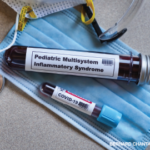Treatment
Dr. Son further discussed the ACR Clinical Guidance document and the role of IVIG, low- to moderate-dose glucocorticoids and intravenous pulse-dose glucocorticoids in the treatment of patients with MIS-C. In addition, she noted, this document also suggests anakinra can be used in cases of refractory disease.1
Dr. Son explained that many challenges still remain regarding MIS-C. For example, what is the best-case definition for this condition that clinicians around the world can agree upon? What are the biologic and genetic mechanisms that underpin this condition? What treatments should be further considered for patients with this disease? Will MIS-C become less prevalent or obsolete once an effective vaccine for SARS-CoV-2 is developed and distributed?
As is the case for so many COVID-19 related topics this past year, many more questions than answers remain, and it will take a global effort to continue to improve the lives of children, as well as adults, facing the complications of this pandemic.
Jason Liebowitz, MD, completed his fellowship in rheumatology at Johns Hopkins University, Baltimore, where he also earned his medical degree. He is currently in practice with Skylands Medical Group, N.J.
References
- Henderson LA, Canna SW, Friedman KG, et al. American College of Rheumatology Clinical Guidance for Multisystem Inflammatory Syndrome in Children Associated With SARS-CoV-2 and Hyperinflammation in Pediatric COVID-19: Version 1. Arthritis Rheumatol. 2020 Jul 23:10.1002/art.41454.
- Esper F, Shapiro ED, Weibel C, et al. Association between a novel human coronavirus and Kawasaki disease. J Infect Dis. 2005 Feb 15;191(4):499–502.
- Goyal MK, Simpson JN, Boyle MD, et al. Racial and/or ethnic and socioeconomic disparities of SARS-CoV-2 infection among children. Pediatrics. 2020 Oct;146(4):e2020009951.
- Ahmed M, Advani S, Moreira A, et al. Multisystem inflammatory syndrome in children: A systematic review. EClinicalMedicine. 2020 Sep;26:100527.



